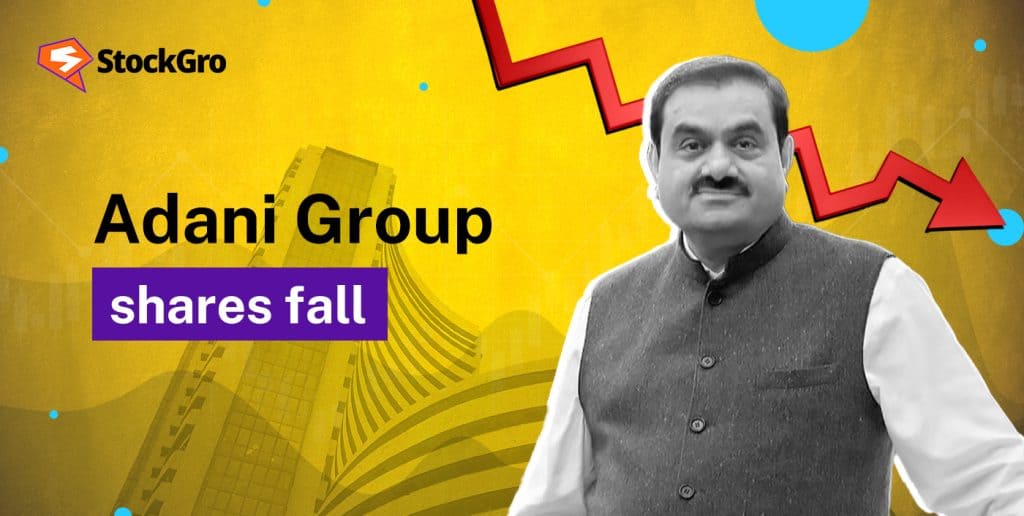
Adani Group’s bonds have seen a sharp decline, hitting their lowest levels in over a year, as concerns about bribery allegations and their potential impact on the conglomerate’s financial stability and global reputation intensify. This marks the latest chapter in the ongoing turbulence for one of India’s largest and most influential business groups.
The drop in bond prices follows reports accusing the Adani Group of being involved in bribery, which has raised alarm bells among investors. These accusations threaten to undermine investor confidence in the company, which has faced a series of challenges since the onset of the scandal earlier this year. The latest wave of negative sentiment surrounding the group’s corporate governance practices has shaken the financial markets, with analysts warning of prolonged volatility for Adani’s stocks and bonds.
The financial fallout from these allegations is becoming increasingly evident as bondholders seek to assess the long-term impact on the conglomerate’s operations, particularly within its key sectors such as infrastructure, energy, and logistics. Adani’s sprawling portfolio, valued at tens of billions of dollars, is now under scrutiny, with concerns regarding its ability to raise capital at favorable terms going forward.
Industry experts are highlighting the connection between corporate governance concerns and bond market behavior. Adani’s bonds have traditionally been seen as a high-risk but high-return investment, attracting investors seeking exposure to India’s rapid economic growth. However, the bribery allegations have triggered a reevaluation of the risks associated with such investments. Analysts are particularly focused on the potential for regulatory crackdowns and legal challenges that could further erode the group’s financial standing.
Investor sentiment has worsened despite Adani’s efforts to stabilize its financials and mitigate the damage. A major factor contributing to the downward pressure on Adani bonds is the perceived lack of transparency around the investigation into the bribery claims. While the group has denied any wrongdoing, the absence of clear and immediate action from authorities has allowed speculation to fester.
For years, Adani Group’s bonds have been a popular choice for institutional investors, with the conglomerate having built a reputation for aggressive expansion. However, as questions surrounding its governance practices grow, more cautious investors are beginning to distance themselves, fearing long-term reputational damage and potential financial consequences. Some analysts suggest that the group’s heavy reliance on debt could exacerbate the situation, making it more vulnerable to shifts in investor confidence.
The decline in bond prices also comes as part of a broader sell-off in Indian markets, which have experienced heightened volatility. Although the broader market has faced challenges, Adani Group’s specific issues are a focal point for many observers, who note that the conglomerate’s size and influence mean that its troubles could ripple through multiple sectors.
The allegations themselves have added another layer of complexity to the Adani Group’s already challenging financial landscape. The group, which operates some of India’s most critical infrastructure, has often been a lightning rod for political and financial scrutiny. Critics have long raised concerns about the group’s rapid rise to prominence, citing its close ties to political figures, which have raised questions about the transparency of its business dealings.
While the allegations remain unproven, the impact on investor confidence is undeniable. The risk premium on Adani bonds has spiked, reflecting the growing uncertainty about the company’s future prospects. Bondholders are particularly focused on whether the allegations will result in regulatory fines or legal actions that could strain Adani’s financial flexibility. If these claims are substantiated, it could prompt a broader reevaluation of other corporate giants in India, especially those with political connections.
Investors are also keeping a close eye on the broader geopolitical implications. With multinational companies having substantial investments in the Indian market, any shift in the country’s regulatory environment, particularly in relation to corporate governance, could have wide-reaching effects. Some international investors have already pulled back, preferring to wait for more clarity on the matter before reentering the market.
Adani Group’s executives have attempted to reassure investors by emphasizing the group’s commitment to ethical business practices. However, the opacity of the investigation and the lack of a clear timeline for resolution have left many investors uneasy. In the absence of concrete information, many are opting to reduce exposure to the conglomerate until the situation stabilizes.




